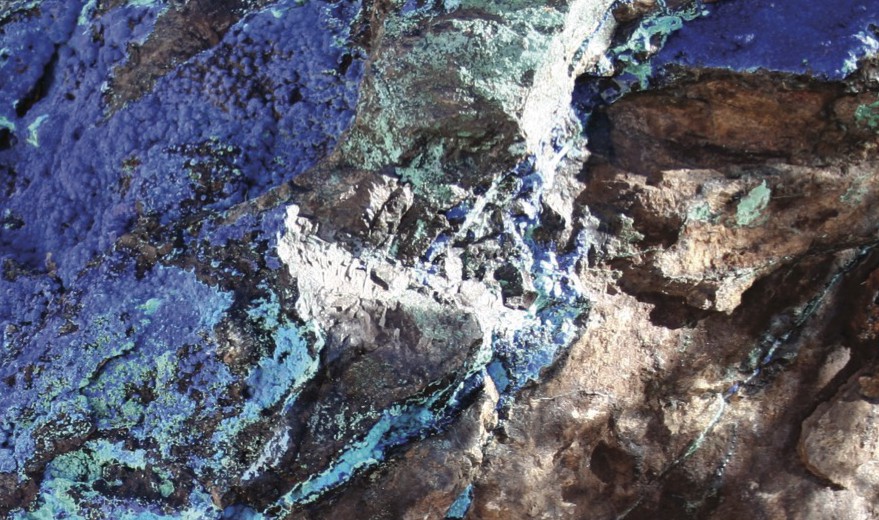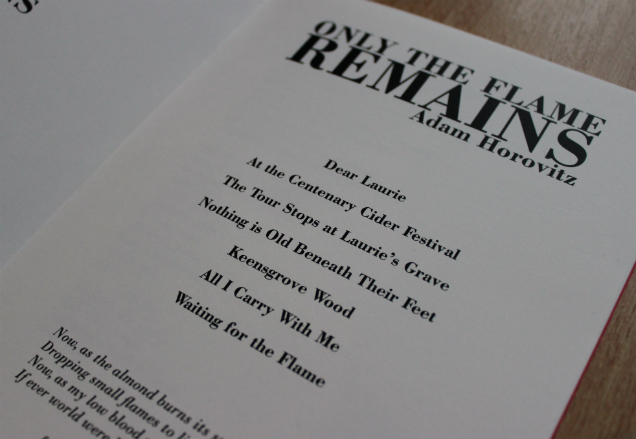Element by Rachel McCarthy, Review #24
-Reviewed by Claire Trévien-

Each poem in poet and scientist’s Rachel McCarthy’s Element takes as its starting point the ‘transition metal elements known to science by 1869’. It’s an intriguing binding agent for a pamphlet, making the corresponding square from the table hover over its poem. Notes at the back further explain the interpretation of each element. For instance, we are told that titanium is used in aircraft manufacture, that Megalodon’s teeth gather manganese, and that bees pick up chromium whilst foraging. All these tidbits are interesting in and of themselves and clarify poems which, at first, seem far removed from their elements.
Some of these links feel a little tenuous, the connexion between the poem ‘Octopus Hunting’ and its element, copper, is that octopuses have copper in their bloods, but the element itself remains absent from the poem:
I flaunt camouflage, mimicry,
My eight arms poised
To claim the unworthy.
It feels more like a case of shoehorning a poem to an element than symbiosis. On the other side of the scale, poems like ‘Early Sun’ (element: Gold) feel so weighed down by their element that you struggle to get to the poem:
Regarding your countless incarnations:
Helios the flame-haired charioteer
Ram-headed Ra on his funeral barge
Sól the divine seer flustered by fear,
each day you’re some form of Dawn
On reflection, I’d prefer more poems of the ilk of ‘Octopus Hunting’ which at least, if accompanied by a note, highlight the different ways in which elements manifest themselves in our world. The poems in Element are ambitiously wide in subject matter, from Dogger Bank to abandoned airfields, to Paul De la Roche’s painting The Execution of Lady Jane Grey.
That quibble aside, the majority of these poems can be appreciated with or without notes, a standout is ‘Fugue’, featuring the aforementioned bees, where each line is deliciously weighted:
Midnight, the mind’s sounding
the Moon an inverted pendulum
plumbing the sky’s depth.I crevice in your lee and wait;
for the charcoaled morning, its soft engine
of blue tit and goldfinch in blossom,
for the tree to loosen its heartwood clot –
a throb of bees
turning the dark slowly over like a thought.
Like the other two strongest poems in this pamphlet, ‘News’, and ‘Postcard of a Break-Up Written at Edinburgh Castle’, it’s the combination of precision and heart that makes it beat.
This December, I have given myself the task of reviewing one pamphlet a day to raise money for next year’s Saboteur Awards. You can help by donating, or sharing the link using the hashtag #pamphletparty. I have given myself the aim of writing at least 300 words for each, a lower word-count than the usual reviews on Sabotage, in the hopes of making it more manageable! Here’s a link to the previously published reviews in this project!




